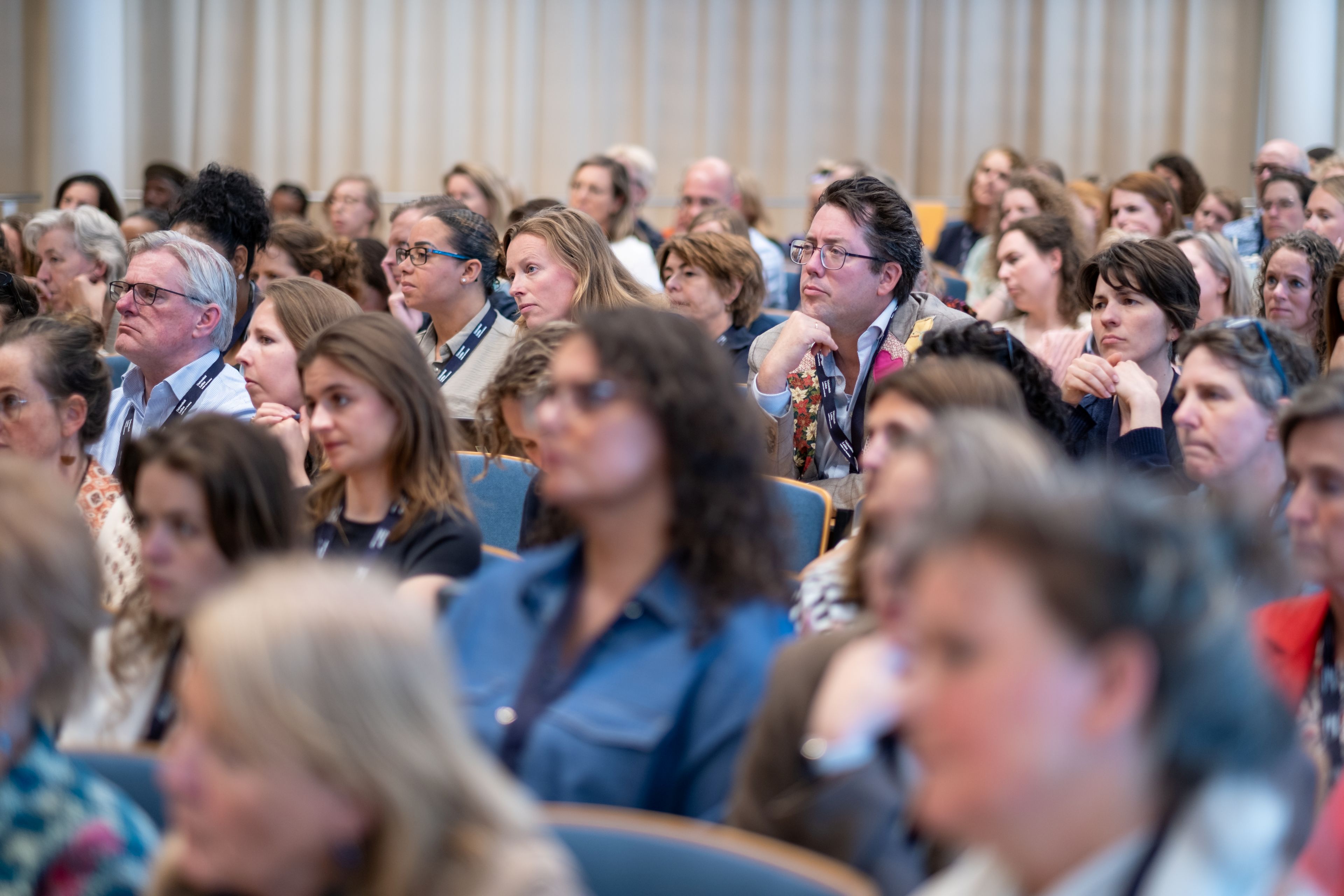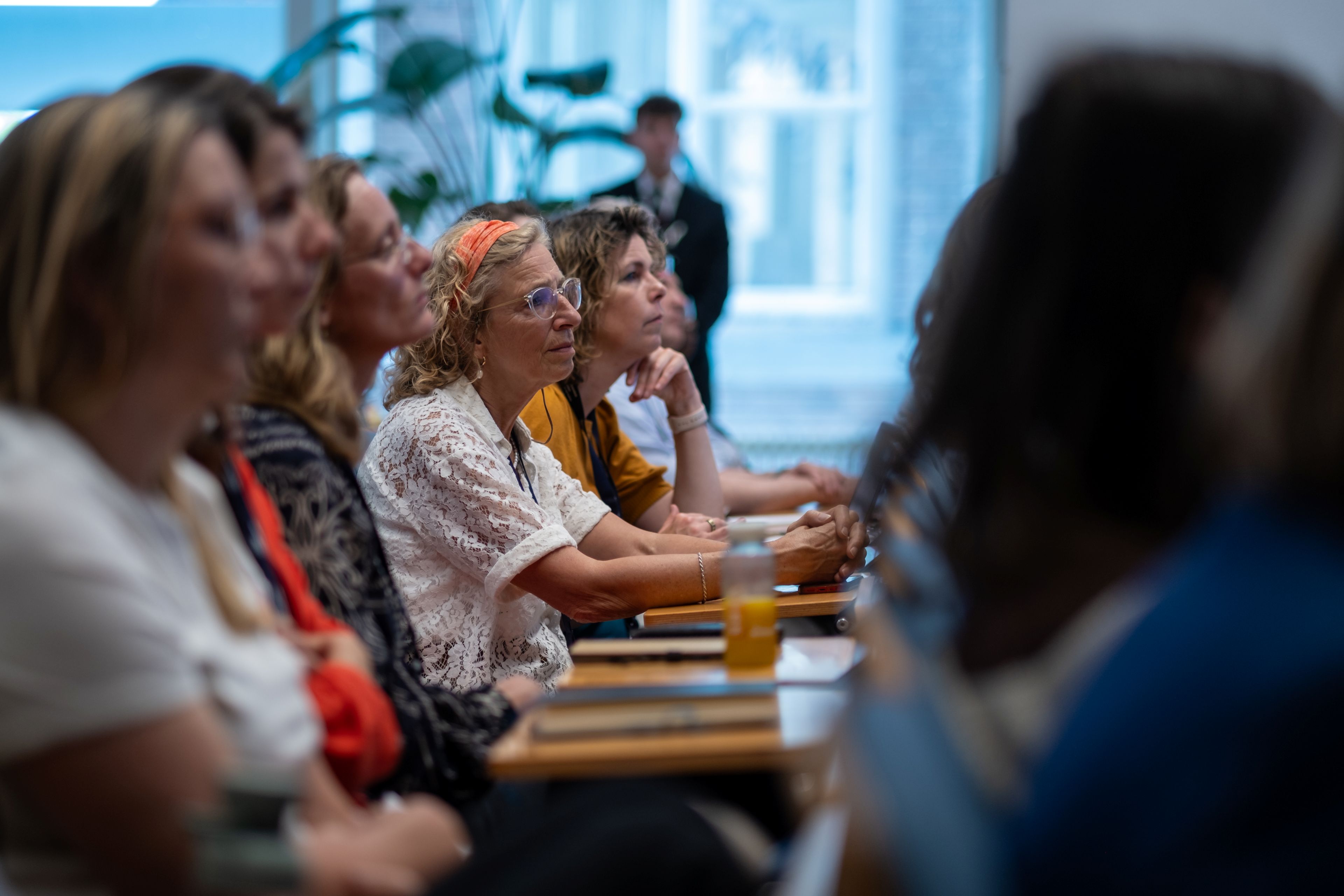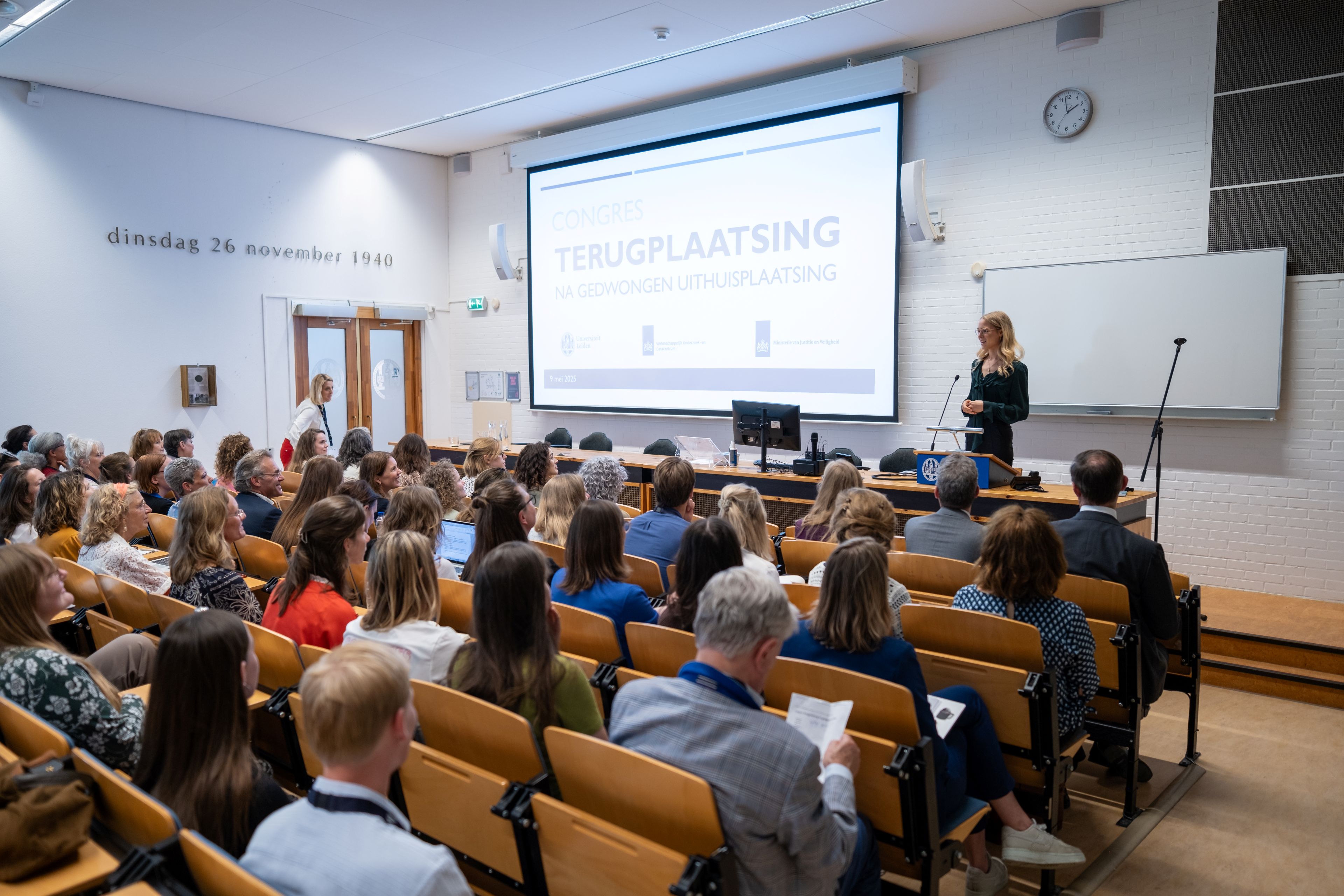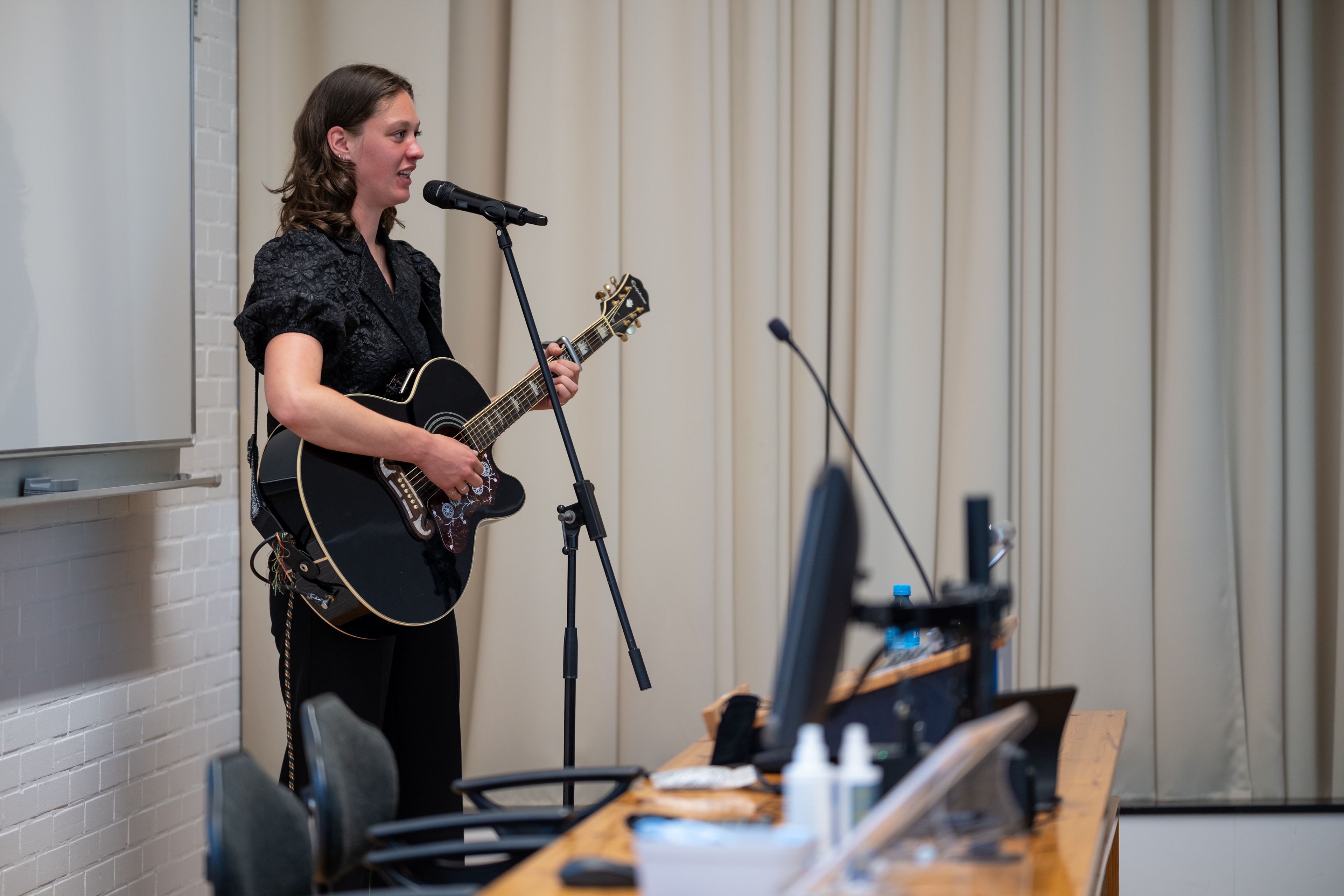
Give parents and children a voice and improve chances of reunification
Research by Leiden University into court-mandated out-of-home placements of children has caused much controversy. More than 250 people attended a conference to discuss the study in order to improve the situation for parents and children in the future.
'Listen to parents and children. They know best what they need.'
These were the words of Lauren, who herself had experienced a court-mandated out-of-home placement. She spoke to an audience of around 250 people involved in youth protection, including youth care workers, lawyers, juvenile court judges, scholars, civil servants and ‘hands on’ experts, parents and children. They had gathered at Leiden Law School on 9 May for the conference 'Reunification after court-mandated out-of-home placement', which Leiden University organised together with the Dutch Ministry of Justice and Security.
Impact of youth protection
State Secretary for Legal Protection Teun Strucyken was also present as a speaker at the conference. He underlined the major importance of the Leiden research report, which he believes will contribute to policy-making for a long time to come and shows why a new way of thinking about youth protection is needed. On the importance of youth protection, he said: 'I consider it a privilege to have youth protection in my portfolio – and have also made it one of my priorities, partly because of the huge impact that youth protection has on children, parents and families.' He cited the situation of the foster girl in Vlaardingen, who was severely abused in her foster family: 'Such tragic events cut to the core and leave lasting scars', according to the State Secretary, also affecting the 'professionals in youth protection, who advise, guide and make statements in good faith – where it only becomes apparent afterwards, or sometimes never at all, if you did the right thing. It’s demanding and responsible work, which can be incredibly rewarding, but with little thanks at the same time'.
Initial investigation into reunification after court-mandated out-of-home placement
The purpose of the conference was to discuss the report 'Reunification after court-mandated out-of-home placement'. For the first time, this study has mapped out how many children in the Netherlands return home after a court-mandated out-of-home placement, and how this reunification process proceeds.
'Such tragic events cut to the core and leave lasting scars'
The study shows, among other things, that 39% of children return home after a court-mandated out-of-home placement. The chance of reunification is much greater when parents receive support during the time their child is placed in care. So, it is important that sufficient and appropriate support is offered. That support is also important following reunification according to the study. For 25% of the children who did return home, the reunification was not permanent and another out-of-home placement followed. According to parents and children, aftercare during and after the period of out-of-home placement, such as in the form of therapy, is therefore essential.
Help parents and children
'Don't leave parents out in the cold' was the message from the scholars who conducted the study and also from the parents and children present, who had had to deal with out-of-home placements in the past. For example, Lauren, who is now a social worker in youth care and involved with parents and children who are confronted with out-of-home placements. She said: 'Parents can’t cope with these types of problems alone. I really think that’s impossible and unnecessary.'
This includes youth workers explaining to parents what goals must be achieved in order to achieve reunification. In practice, this turns out to be very challenging, partly because – despite their best intentions – care providers do not always speak the same language as parents and children. Parents and children would also like to be more involved in formulating those goals. There was ample room during the conference to discuss these issues together and to consider how everyone involved in youth protection can improve the process of out-of-home placement and reunification.
-

Partipants -

Participants -

Hands-on expert Lauren -

Hands-on expert Maaike -

Researchers
